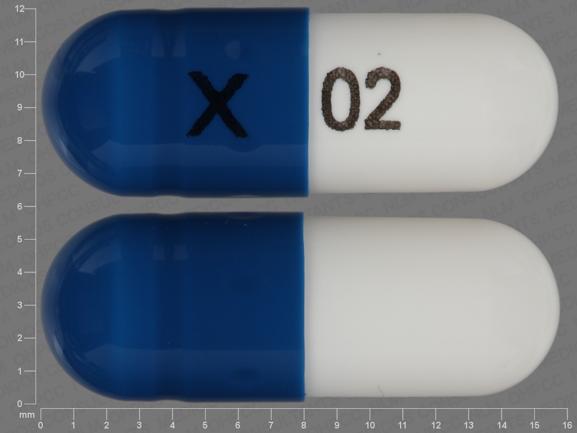Francisco Church is a rehabilitation specialist and the chief editor of Recovery Ranger. He creates this site to offer guidance and support to individuals seeking...Read more
Duloxetine, also known as Cymbalta, is a prescription medication used to treat depression, anxiety, and nerve pain. It is part of the class of drugs known as selective serotonin and norepinephrine reuptake inhibitors (SSNRIs). But is it also a stimulant? In this article, we will discuss what duloxetine is, how it works, and whether it can also be classified as a stimulant. By the end, you should have a better understanding of this medication and its effects.
Contents
- What is Duloxetine?
- Is Duloxetine a Stimulant?
- Related Faq
- What is Duloxetine?
- Is Duloxetine a Stimulant?
- What are the Side Effects of Duloxetine?
- Is Duloxetine Addictive?
- Can Duloxetine be Used for Long-Term Treatment?
- Can Duloxetine Interact with Other Medications?
- Cymbalta (Duloxetine): What are the Side Effects? Watch Before You Start!
- Is Diethylpropion A Stimulant?
- Is Alcohol A Inflammatory?
- Does Alcohol Make A Uti Worse?
What is Duloxetine?
Duloxetine is a medication used to treat depression, anxiety, and certain types of chronic pain conditions. It is part of a class of drugs called selective serotonin and norepinephrine reuptake inhibitors (SSNRIs). It works by increasing levels of serotonin and norepinephrine in the brain, which are neurotransmitters that help regulate mood and emotion. Duloxetine has been approved by the U.S. Food and Drug Administration (FDA) for the treatment of depression, generalized anxiety disorder, and diabetic peripheral neuropathic pain.
How Does Duloxetine Work?
Duloxetine works by blocking the reuptake of serotonin and norepinephrine. This increases the levels of these neurotransmitters in the brain, which in turn helps to regulate mood and emotion. It also helps to reduce pain signals in the brain and can help improve sleep quality.
What is the Difference Between a Stimulant and a Non-Stimulant?
A stimulant is a type of medication that increases alertness, energy, and concentration. Stimulants are typically used to treat conditions like attention deficit hyperactivity disorder (ADHD). Examples of stimulants include amphetamines, methylphenidate, and modafinil. Non-stimulants are medications that do not have a stimulant effect. Examples of non-stimulants include antidepressants, antipsychotics, and antihistamines.
Is Duloxetine a Stimulant?
No, Duloxetine is not a stimulant. It is a non-stimulant medication and is classified as a selective serotonin and norepinephrine reuptake inhibitor (SSNRI). It works by increasing levels of serotonin and norepinephrine in the brain, which are neurotransmitters that help regulate mood and emotion. It is not intended to be used as a stimulant and should not be used as such.
What are the Side Effects of Duloxetine?
The most common side effects of Duloxetine include nausea, dry mouth, constipation, loss of appetite, and difficulty sleeping. Other more serious side effects can include an increase in blood pressure, suicidal thoughts, and seizures. It is important to speak to your doctor about any side effects you may experience while taking Duloxetine.
What is the Recommended Dosage of Duloxetine?
The recommended dosage of Duloxetine will vary depending on the individual and their condition. It is important to speak to your doctor before taking Duloxetine to ensure you are taking the correct dosage. Common dosages range from 20-60mg per day.
Related Faq
What is Duloxetine?
Duloxetine is an oral medication used to treat major depressive disorder, generalized anxiety disorder, fibromyalgia, and neuropathic pain. It belongs to a class of drugs known as selective serotonin and norepinephrine reuptake inhibitors (SSNRIs), which work by increasing the amount of serotonin and norepinephrine in the brain.
Is Duloxetine a Stimulant?
No, Duloxetine is not a stimulant. Stimulants are medications that increase alertness and energy, while Duloxetine is an antidepressant that works on serotonin and norepinephrine levels in the brain to treat depression, anxiety, and related conditions.
What are the Side Effects of Duloxetine?
The most common side effects of Duloxetine include nausea, dry mouth, constipation, fatigue, sleepiness, increased sweating, and decreased appetite. Other side effects may include headaches, dizziness, anxiety, sexual dysfunction, and weight gain.
Is Duloxetine Addictive?
No, Duloxetine is not known to be addictive. It is not a controlled substance and does not have the potential for abuse. However, it is important to take it as prescribed and not to abruptly stop taking it, as this can cause withdrawal symptoms.
Can Duloxetine be Used for Long-Term Treatment?
Yes, Duloxetine can be safely used for long-term treatment. Studies have found that it is effective for treating depression and anxiety for up to a year. However, it is important to discuss any potential risks or side effects with your doctor before taking it for an extended period of time.
Can Duloxetine Interact with Other Medications?
Yes, Duloxetine can interact with certain medications, such as antidepressants, anticoagulants, and certain pain medications. It is important to inform your doctor of any other medications you are taking before starting Duloxetine, as it can lead to serious side effects.
Cymbalta (Duloxetine): What are the Side Effects? Watch Before You Start!
To sum up, duloxetine is a selective serotonin and norepinephrine reuptake inhibitor (SNRI) used to treat depression, anxiety, and chronic pain. It is not a stimulant and has no stimulant properties. While duloxetine has been effective in treating the conditions it is prescribed for, patients should consult with their doctor before using it. Additionally, the potential side effects should be taken into consideration before starting duloxetine.
Francisco Church is a rehabilitation specialist and the chief editor of Recovery Ranger. He creates this site to offer guidance and support to individuals seeking to overcome addiction and achieve lasting sobriety. With extensive experience in the field of addiction treatment, Francisco is dedicated to helping individuals access the resources they need for successful recovery.
- Latest Posts by Francisco Church
-
Is Diethylpropion A Stimulant?
- -
Is Alcohol A Inflammatory?
- -
Does Alcohol Make A Uti Worse?
- All Posts

